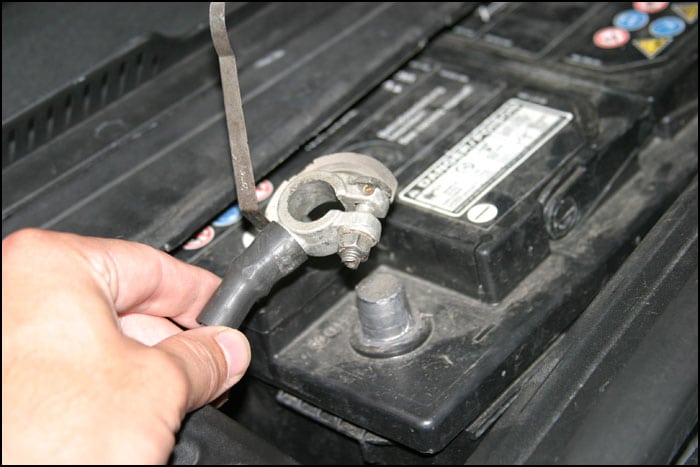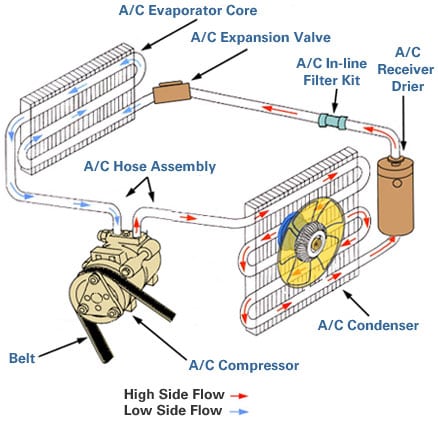A relatively common “side-effect” of replacing a battery and/or alternator in a car is to have the voltage (battery) warning light come on. This is especially true in late-model vehicles with their more sophisticated internal diagnostic systems.
There are usually two things that cause the battery light to come on after a battery replacement. The most common is a loose connection – perhaps a terminal connector was not tightened sufficiently when the battery was replaced. The other is corrosion interfering with current flow, the result of changing out the battery without cleaning the terminal connectors and other connections along the starting and charging circuits.
Similarly, there are two things that generally cause a battery warning after an alternator replacement. The most common is, again, a loose connection either with the control plug (aka “relay” plug-in), charging line connection, or the ground. The other is a blown fuse or defective connector or relay, which could have been broken or shorted when the alternator was installed or on the first start-up after its installation.
Finally, a problem could be defective replacement parts. Sometimes, batteries are just not as good as they are manufactured to be due to hidden defects or a longer-than-usual shelf wait before being purchased. Similarly, alternators can be defective out of the box, especially if they’re refurbished or rebuilt. For these reasons, it’s important that when you purchase a new or used battery or alternator at the parts store, you have them test them before you buy and install them. Most stores will put up no fuss when you make this request and if they do, you should go to another store. You, the customer, are after assurance that what you’re buying is what it should be and if they will not give you that, there’s no reason to trust them.
As with most electrical issues, if you know the battery or alternator is OK (because you had it tested), then diagnosis comes down to tracing and testing for continuity from one portion of the circuit(s) involved to the next. Assuming all fuses are fine, you can test relays by swapping them with others of the same part number (many vehicles will have two or three of the same relay running various components) or by testing the relay itself via continuity and resistance methods.







